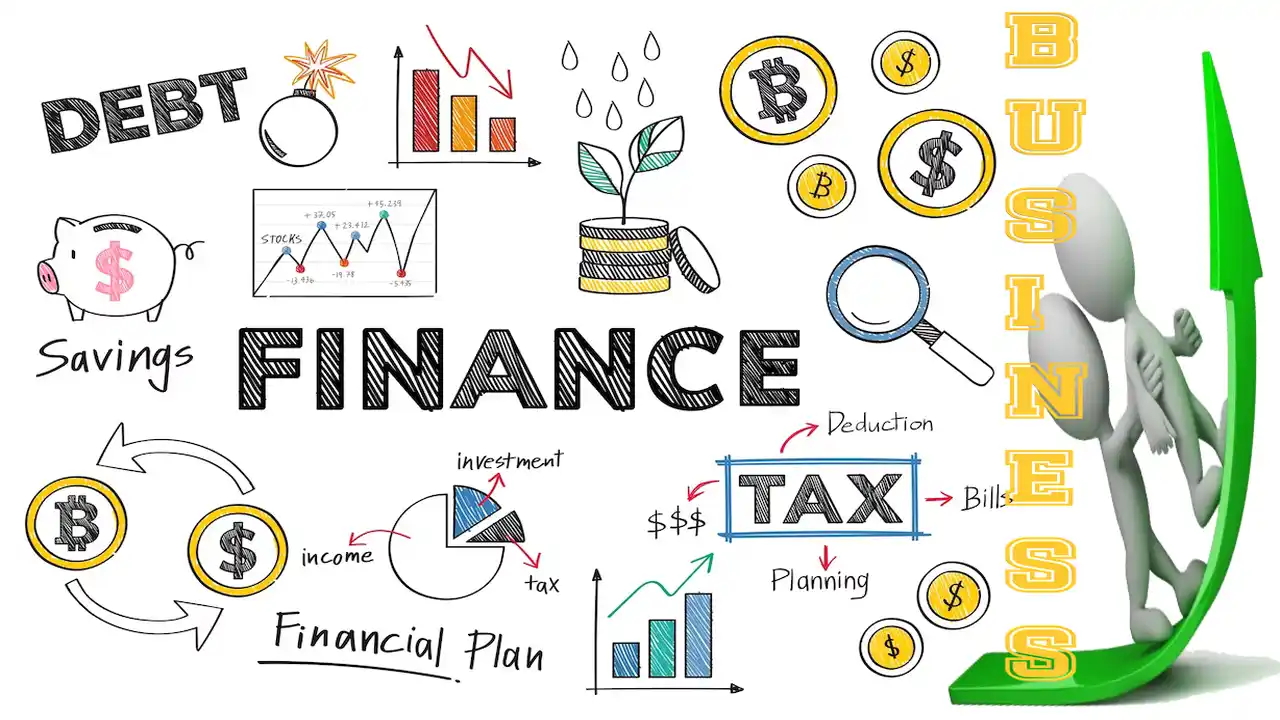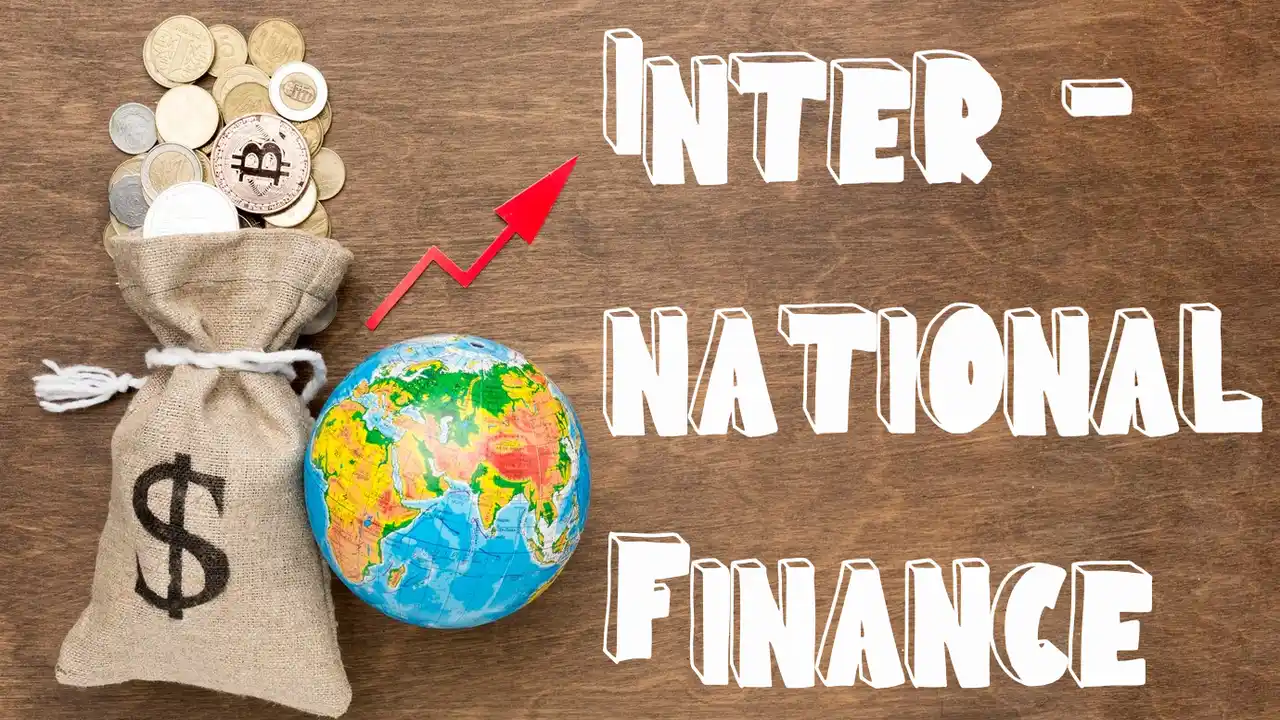Any sound financial plan, whether for an individual or a business, must include a debt management strategy to keep track of all owed funds. In order to become financially self-sufficient, a business can use debt management to settle its debts. Adopting a debt management strategy to pay off your expenses before retiring is one option if you want to quit working and avoid making payments. There will be no further fees due once you depart. Read on to discover everything there is to know about elements of financial plan and to become a subject matter expert on it.
The phrase “financial planning” refers to a set of procedures that can be used to assess the present and future financial situation of a business. Identifying the necessary funding sources and the best capital structure is an important part of financial planning. This helps planners assess the company’s financial health. Financial planning also helps with the development of rules that control cash flow and make sure the company uses its money efficiently, which is a huge plus for organizational leaders.
Elements of Financial Plan
Step one in planning is to identify your objectives; step two is to calculate the time available to accomplish them. With this knowledge, you may launch into Monte Carlo trials. In addition to your advisor’s expert opinion on the possible returns and volatility of your assets, the simulation takes rebalancing settings, taxes, and inflation into account. After that, robust planning software analyses all of the data, does random simulations, and presents the outcomes according to their likelihood of success. As you make changes to your financial strategy, you may see the impact on your success probabilities. The ability to turn possibilities into alternatives is a great benefit of Monte Carlo simulations. Here are a few things you should know about elements of financial plan before you think about money, investing, business, or management.
Last will and Testament Preparation
In the event of your death, what sort of individual would you choose to get your wealth? Nothing is more terrifying than thinking about your own mortality, but if you don’t make plans, the government might seize most of your possessions. Going through the estate process isn’t necessary if you want to leave something to the community or distribute your possessions to the right people. Who would you trust with your finances or health care if you couldn’t do it yourself? Have you written a valid and up-to-date Will? Is the future of your children from a previous marriage something you’ve given any thought to? Any strategy worth its salt will answer each and every one of these crucial questions.
Track Your Progress
You are probably well aware that creating a personal budget is a process that is open to change. Your financial situation, your vision, and your aspirations all change over time. Therefore, you should seek out a method of monitoring your development that works for you and permits you to record your income and expenditures frequently. The abundance of web and smartphone apps that can connect to your accounts and streamline the process is truly a blessing.
Build your Financial Plan
Your income and expenditures can be better planned with a few weeks of careful record-keeping. Additionally, include any situation-specific one-time income and expenditures like taxes, awards, school fees, and insurance payments. Your income and expenditures should be clearly laid out for you with this data. Start by cataloging all of your “needs” and “wants,” and then arrange them according to your priority. Incorporate your financial goals, such as paying off debt and saving for retirement, into your plan.
Forecasting Revenue and Expenses
The profit and loss statement is a financial document that lays out an organization’s expected revenue and expenses for a given accounting period. Like a profit and loss statement, a profit and loss forecast follows a certain format. Regardless, it is based on future-oriented realities. There are noticeable differences in the way different companies report their financial results. Conversely, there are five fundamental measurements that make up the framework. I. Gross profit; (ii) EBIT, or earnings before interest and taxes; (iii) EBITDA, or earnings before interest, taxes, depreciation, and amortization; (iv) EBT, with no taxes deducted; and (v) net income. After subtracting allowances (such damaged items), refunds, and discounts, a company’s net sales are the remaining funds. What a business calls “net sales” is the sum of all the money it makes from sales.
Assessing Potential Dangers
Risk is an important factor for individuals and businesses to consider when making financial plans. An important step toward reducing expenditure, improving financial conditions, and saving money is to examine the risks that could damage the growth and performance of the financial sector. For instance, economic concerns, purchasing tactics, credit risk, and money production are all factors in a company’s financial risk analysis. How profitable and successful a business is in the market is affected by all of these things. Risk analysis foretells changes in financial management, interest rates, and retirement savings. In a comprehensive risk assessment, consider wealth management, insurance, and contingency plans for market crashes. From budgeting to investing, mastering the elements of a financial plan unlocks your financial goals.
Key Tax Considerations
After the cost of a home, taxes are usually the second-most expensive expense a Canadian has to bear. It is impossible to have a thorough financial plan without including taxes. Many people face complex tax situations, requiring a tax expert to assess opportunities and challenges. Utilize strategies to shift assets from taxable investments to those with favorable tax treatment. Instead of giving your money to the government, you may donate it to a good cause.
Financial Documents
Companies usually only need to have balance sheets if they have a financial plan. But anyone may use the idea to maintain tabs on their money, possessions, and responsibilities. As a component of a financial plan, a balance sheet details the assets and liabilities of a company. Assets include things like inventory and accounts receivable, while liabilities include things like accounts payable and credit balances. This word is used a lot in the business world. Many businesses might have equity. The financial plan’s balance sheet will show this.
Equity can take the shape of either stock proceeds or retained gains. Investors in stocks, bonds, or real estate can benefit from using a balance sheet for financial planning to track their holdings. Similar financial plan sections can record debt payments, including credit card interest or stock payments. Retirement and asset management can both benefit from this part of a financial strategy. A person’s financial well-being can be affected by its ability to help them keep track of their long-term assets and debts.
Financial Forecasting
Having a cash flow strategy and knowing your revenue and expenses is important regardless of your income level. Having a business or having money come from multiple sources makes this more true. By starting with the entire amount of money coming in and the total amount saved, a budget may be used to figure out what is spent. Since it can show a difference between the actual and budgeted expenditure, this is usually the part of planning that people dislike the most.
Plan for Financial Investments
Financial plans, whether for individuals or businesses, often include investing ideas and spending habits conducive to financial prosperity. For a long-term focus, investment strategies may involve strategic alliances, mergers, or acquisitions. In the workplace, these methods find application. A business’s financial strategy encompasses various investment approaches, including public share offerings, project-specific donations, and reinvestment of earnings. To achieve enduring success, stronger cash flow management techniques may be integrated into the investment strategy. This aligns with the company’s cash flow strategy. A well-crafted financial plan can guide the necessary procedures for effective investment management to help you reach your financial goals.
Planning for Retirement
For instance, your chosen retirement date significantly impacts the amount you need to save. Planning for retirement involves considering factors such as when to collect CPP and OAS, pension payout preferences, and managing taxable income. Part of this planning includes creating a yearly spending plan that encompasses expenses covered by savings, investments, and government assistance. By incorporating this into your financial plan, you can better prepare for post-retirement life. Financially planning for retirement allows you to save adequately, not just for basic needs, but also for additional expenses. Your retirement plan can cover essentials like food and housing, as well as discretionary spending such as vacations, debt payments, and miscellaneous expenditures.
Financial Aspirations and Targets
Most people think the most important part of a financial plan is the part where you state your financial objectives. For individuals, this section may encompass both long-term financial goals and specific short-term objectives to achieve them. For instance, if aiming to earn half a million dollars in fifteen years, opening a savings account and mastering spending habits are two short-term objectives advancing toward the long-term goal.
You can make a strategy describing the steps you will take to reach your goals with the help of your financial plan. You can stay on track and accomplish your goals with the help of this technique. In a company setting, individual financial objectives differ from collective financial targets. A company’s financial plan, for instance, would start with a long-term objective of profitability and then break it down into more manageable revenue measurements for the near future. The company may establish sales goals and implement cost-cutting initiatives to make it easier to reach its financial objectives.
Define your Emergency Fund Goal
Prioritizing the here and now is more important than saving for the future, whether that’s retirement or your kids’ college. Unexpected events can instantly derail well-laid plans and jeopardize financial success if unprepared monetarily. In the near term, you should strive to save enough money to pay for three to six months’ worth of living expenditures. Understanding the elements of a financial plan empowers you to take control of your future.
To safeguard your retirement savings and prevent additional tax bills from your loved ones, initiate an emergency fund. Knowing the fund amount enhances preparation for unforeseen deviations from your financial plan. An emergency fund facilitates regular operations during unexpected drops in demand or substantial losses. To be ready for costly events, such as injuries, consider establishing an emergency fund to support your goals and ambitions.
FAQ
How Exactly is a Financial Strategy Put into Action?
The purpose of creating a financial plan is to lay out your present financial situation, your long-term financial objectives, and the steps you’ll take to reach those objectives. All aspects of your financial situation, including income, investments, debt, and insurance, should be detailed in a comprehensive financial plan.
As a Business Owner, why is it Crucial to have a Firm Grasp of the Company’s Finances?
As a business owner, knowing what factors affect your expenses is of utmost importance. If you operate a business or drive a car, you should be extremely careful with your spending if you want to save a lot of money on general expenditure. Finding ways to cut costs and save money is easier when you know what causes your rates to climb or fall.
For what Purposes are Financial Accounts Useful while Making Decisions?
It puts up the projected earnings for a certain time frame for the business. You may also use it to see how your company stacks up against others in the same industry or with a similar size. You can utilize the income statement to figure out how to keep your operational costs and cost of products sold under control while keeping your profit margins high.
Final Words
ZLC, an independent business in Vancouver, provides services, including financial planning advice. Our method not only provides financial estimates but also enhances understanding and control over money. Always consider that elements of a financial plan play a significant role in various operations. Get more information on advantages of financial plan issue by reading this comprehensive guide.






